
 |
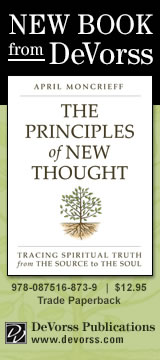 more... |
 |
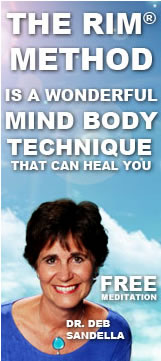 more... |
 |
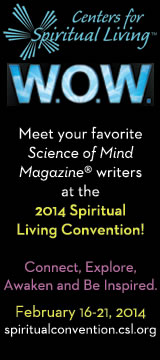 more... |
 |
 more... |
 |
The Greatest Discovery of All Time...Mind
Man’s first discovery of his ability to think was taken as a matter of fact. He had always been able to think. It was proof that he existed; it gave him the ability to know his needs and to supply them. It appeared to be an automatic thing; it came with him and would doubtless die when he died. The brain seemed to be the organ of thought, and, of course, when death stilled the brain, it would no longer operate. However, a day came when some wise man claimed that it is not the brain that does the thinking, for if the brain could think it would keep on thinking when removed from the body; yet without a brain, a man could not think, which proved that something behind the brain used it as an instrument. Man does think, so behind the brain there must be a thinker. But where is the thinker? We do not see him. Have we a right to say there is a thinker, when we have never seen him? Yes, for the proof of this reality is the evidence of his thought. Back of the organism is the thinker and the doer—the Mind. This was the greatest discovery of all time, for it meant that the body without the thinker could not function. At first, man did not perceive this and thought only of his body as self-operating, but when he discovered this was not the case, he found that he could consciously think and decide, and that something happened to his thoughts after he thought them; they went somewhere and returned to him as memory. Pondering on this, man came to the conclusion that memory was an active thing, and he reasoned after this fashion: “Memory must be the storehouse of all ideas that have passed through my mind. Memory is active, for my thoughts come back to me. My thought is conscious of my body; my body is operated upon by my thought, and it must be operated upon by my memory, since memory is active, but since memory is the result of conscious thought, memory of itself is an unconscious operation of what was once a conscious thought.” This is one of the most important conclusions which the mind of man has ever made. By changing his thought, he could re-mold his affairs; and by right thinking, he could bring new conditions into his life! Tremendous! Excerpted from The Science of Mind by Ernest Holmes, Tarcher/Penguin publisher. |
|
What about Mind after Death?
|
|
The Hymn "Amazing Grace" — 240 Years of Inspiration
Gospel singer Wintley Phipps explains, “A lot of people don’t realize that just about all Negro spirituals are written on the black notes of the piano. Probably the most famous on this slave scale was written by John Newton, who used to be the captain of a slave ship, and many believe he heard this melody that sounds very much like a West African sorrow chant. And it has a haunting, haunting plaintive quality to it that reaches past your arrogance, past your pride, and it speaks to that part of you that’s in bondage. And we feel it. We feel it. It’s just one of the most amazing melodies in all of human history.” Wintley Phipps’s performance, delivered at Carnegie Hall, is one of the most amazing renditions of this powerful hymn. You won’t want to miss this! |
|
The U.S. Dream Academy Helps the Children of Prisoners
In addition to his well-known talent as a gospel singer, Wintley Phipps is known for his devotion to the children of prison inmates. While performing gospel music in Texas prisons, he was moved as he observed young people visiting their incarcerated parents. Phipps wanted to help these vulnerable children build skills, character, and dreams that would prevent them from making their parents’ mistakes. To achieve this goal, he founded U.S. Dream Academy, an organization dedicated to support these children by providing mentors and tutoring. Today, the U.S. Dream Academy has learning centers in eight communities throughout the United States. Learn more about this inspiring organization based on Wintley Phipps belief: “A child with a dream is a child with a future.” |
|
 |
|
| Feel free to forward this to your friends. | |
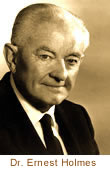
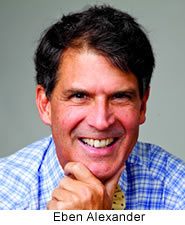 Barry Ebert’s interview with neurosurgeon Eben Alexander offered readers a glimpse into the afterlife. Meet the skeptic who now believes heaven exists. Hear him discuss his near death experience and why it turned him into a believer.
Barry Ebert’s interview with neurosurgeon Eben Alexander offered readers a glimpse into the afterlife. Meet the skeptic who now believes heaven exists. Hear him discuss his near death experience and why it turned him into a believer.  On January 1, 1773, John Newton’s hymn “Amazing Grace” was first heard. Newton, who once made his living as the captain of a slave ship, experienced a life-changing conversion during a storm at sea. His conversion from atheist to believer shaped the remainder of his life. In 1788, Newton published a pamphlet addressing the evils of his former profession, the slave trade, and became an influential force in the abolition of slavery in Britain. Many believe that the sounds emerging from the bowels of the slave ship must have haunted Newton’s life and may have inspired the melody for the hymn.
On January 1, 1773, John Newton’s hymn “Amazing Grace” was first heard. Newton, who once made his living as the captain of a slave ship, experienced a life-changing conversion during a storm at sea. His conversion from atheist to believer shaped the remainder of his life. In 1788, Newton published a pamphlet addressing the evils of his former profession, the slave trade, and became an influential force in the abolition of slavery in Britain. Many believe that the sounds emerging from the bowels of the slave ship must have haunted Newton’s life and may have inspired the melody for the hymn. 